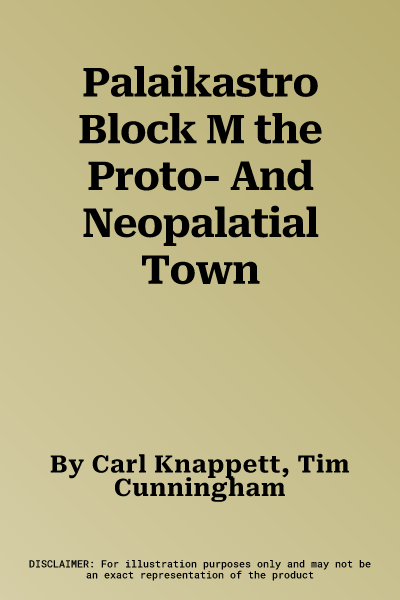Carl Knappett
(Author)Palaikastro Block M the Proto- And Neopalatial TownHardcover, 31 December 2012

Qty
1
Turbo
Ships in 2 - 3 days
In Stock
Free Delivery
Cash on Delivery
15 Days
Free Returns
Secure Checkout

Print Length
338 pages
Language
English
Publisher
British School at Athens
Date Published
31 Dec 2012
ISBN-10
0904887650
ISBN-13
9780904887655
Description
Product Details
Authors:
Book Format:
Hardcover
Date Published:
31 December 2012
Dimensions:
29.72 x
21.08 x
3.3 cm
ISBN-10:
0904887650
ISBN-13:
9780904887655
Language:
English
Location:
London
Pages:
338
Publisher:
Weight:
322.05 gm